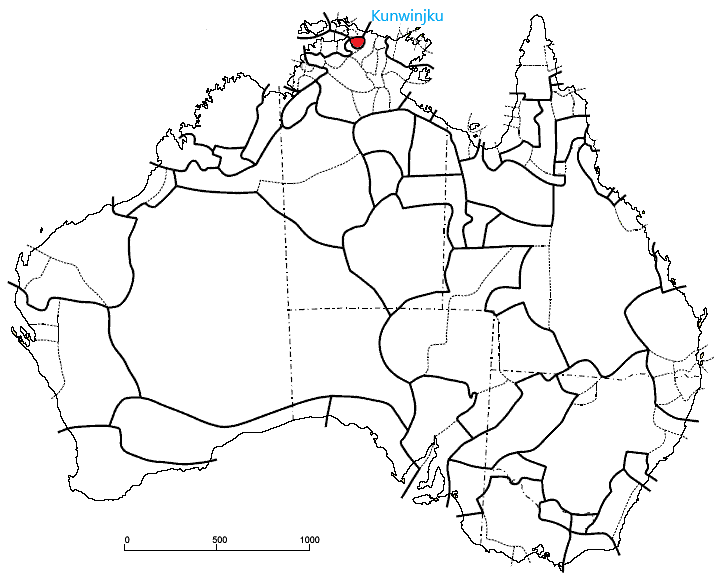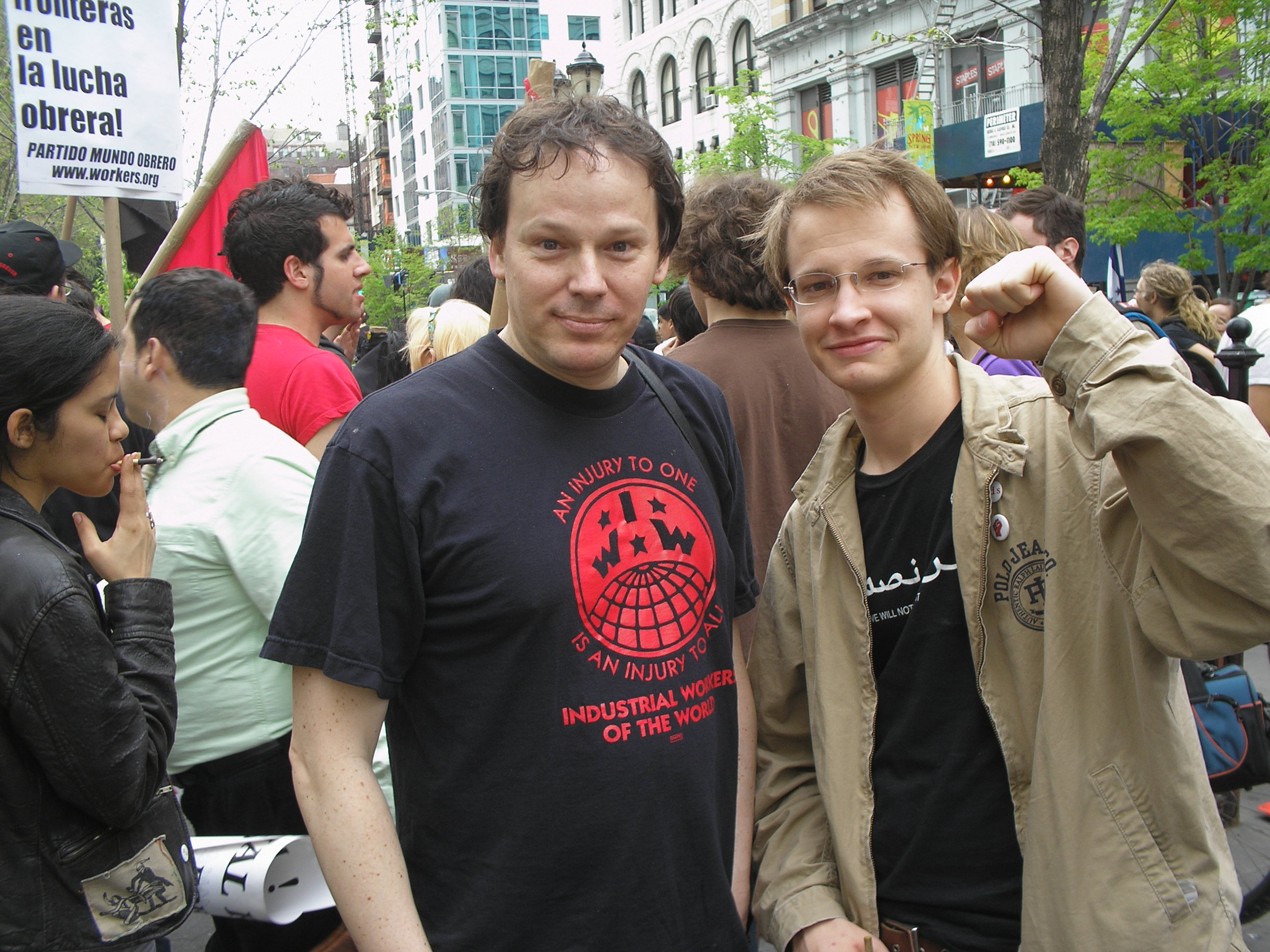|
Dzamalag
Dzamalag was a form of ritualised ceremonial exchange or bartering practised by the Kunwinjku people of Western Arnhem Land in northern Australia. As described by the anthropologist Ronald Berndt in 1951, a dzamalag ritual would include dancing, singing, and the exchange of sexual favours and goods (especially tobacco) between the trading groups. In David Graeber's '' Debt: The First 5,000 Years'', he connects this phenomenon with "the myth of barter", or the argument that bartering was not the predominant method of exchange in ancient or prehistoric societies. Barter was really only used when dealing with strangers, or with those you could not trust to establish long-term (often credit) relations with. The Kunwinjku people practised Dzamalag when they wished to exchange items with another moiety or party. An example of dzamalag held in the 1940s shows the main exchange being serrated spears and European cloth. Sources *{{cite book, first=David , last=Graeber, title=Debt: The ... [...More Info...] [...Related Items...] OR: [Wikipedia] [Google] [Baidu] |
Kunwinjku People
The Kunwinjku (formerly written Gunwinggu) people are an Australian Aboriginal people, one of several groups within the Bininj people, who live around West Arnhem Land to the east of Darwin, Northern Territory. Kunwinjku people generally refer to themselves as "Bininj" (meaning people, or Aboriginal people) in much the same way that Yolŋu people refer to themselves as "Yolŋu". Language They traditionally speak the Kunwinjku language. Country Their original heartland is said to have been in the hilly terrain south of Goulburn Island and their frontier with the Maung running just south oTor Rock Their northern extension approached Sandy Creek, while they were also present south-east at the head oCooper's Creekand part of the King River. In Norman Tindale's scheme, the Kunwinjku were allotted a tribal territory of around in the area south oJungle Creekand on the headwaters of the East Alligator River. The Gumader swamps near Junction Bay and the creeks east of Oenpelli/''Awu ... [...More Info...] [...Related Items...] OR: [Wikipedia] [Google] [Baidu] |
Ronald Berndt
Ronald Murray Berndt (14 July 1916 – 2 May 1990) was an Australian social anthropologist who, in 1963, became the inaugural professor of anthropology at the University of Western Australia. He and his wife Catherine Berndt maintained a close professional partnership for five decades, working among Aboriginal Australians at Ooldea (1941), Northern Territory cattle stations (194446), Balgo (195781) and natives of New Guinea (195153). Early life and education Berndt was born in 1916 in Adelaide. He attended high school at Pulteney Grammar School. He graduated from the University of Sydney in 1951 with a Bachelor of Arts, following up with a Master of Arts in 1954. He was awarded a PhD for a thesis based on his anthropological work in New Guinea. Aboriginal land rights Berndt was an early advocate for legal recognition and protection of Aboriginal sacred sites, and clashed in 1980 with the Liberal premier Sir Charles Court over the Noonkanbah dispute in the Kimberley region. ... [...More Info...] [...Related Items...] OR: [Wikipedia] [Google] [Baidu] |
Barter
In trade, barter (derived from ''baretor'') is a system of exchange in which participants in a transaction directly exchange goods or services for other goods or services without using a medium of exchange, such as money. Economists distinguish barter from gift economies in many ways; barter, for example, features immediate reciprocal exchange, not one delayed in time. Barter usually takes place on a bilateral basis, but may be multilateral (if it is mediated through a trade exchange). In most developed countries, barter usually exists parallel to monetary systems only to a very limited extent. Market actors use barter as a replacement for money as the method of exchange in times of monetary crisis, such as when currency becomes unstable (such as hyperinflation or a deflationary spiral) or simply unavailable for conducting commerce. No ethnographic studies have shown that any present or past society has used barter without any other medium of exchange or measurement, and an ... [...More Info...] [...Related Items...] OR: [Wikipedia] [Google] [Baidu] |
Arnhem Land
Arnhem Land is a historical region of the Northern Territory of Australia, with the term still in use. It is located in the north-eastern corner of the territory and is around from the territory capital, Darwin. In 1623, Dutch East India Company captain Willem Joosten van Colster (or Coolsteerdt) sailed into the Gulf of Carpentaria and Cape Arnhem is named after his ship, the ''Arnhem'', which itself was named after the city of Arnhem in the Netherlands. The area covers about and has an estimated population of 16,000, of whom 12,000 are Aboriginal and Torres Strait Islander people. Two regions are often distinguished as East Arnhem (Land) and West Arnhem (Land), and North-east Arnhem Land is known to the local Yolŋu people as Miwatj. The region's service hub is Nhulunbuy, east of Darwin, set up in the early 1970s as a mining town for bauxite. Other major population centres are Yirrkala (just outside Nhulunbuy), Gunbalanya (formerly Oenpelli), Ramingining, and Maningrida. ... [...More Info...] [...Related Items...] OR: [Wikipedia] [Google] [Baidu] |
David Graeber
David Rolfe Graeber (; February 12, 1961September 2, 2020) was an American anthropologist and anarchist activist. His influential work in economic anthropology, particularly his books '' Debt: The First 5,000 Years'' (2011) and ''Bullshit Jobs'' (2018), and his leading role in the Occupy movement, earned him recognition as one of the foremost anthropologists and left-wing thinkers of his time. Born in New York to a working-class Jewish family, Graeber studied at Purchase College and the University of Chicago, where he conducted ethnographic research in Madagascar under Marshall Sahlins and obtained his doctorate in 1996. He was an assistant professor at Yale University from 1998 to 2005, when the university controversially decided not to renew his contract before he was eligible for tenure. Unable to secure another position in the United States, he entered an "academic exile" in England, where he was a lecturer and reader at Goldsmiths' College from 2008 to 2013, and a profe ... [...More Info...] [...Related Items...] OR: [Wikipedia] [Google] [Baidu] |
The First 5000 Years
''The'' () is a grammatical article in English, denoting persons or things already mentioned, under discussion, implied or otherwise presumed familiar to listeners, readers, or speakers. It is the definite article in English. ''The'' is the most frequently used word in the English language; studies and analyses of texts have found it to account for seven percent of all printed English-language words. It is derived from gendered articles in Old English which combined in Middle English and now has a single form used with pronouns of any gender. The word can be used with both singular and plural nouns, and with a noun that starts with any letter. This is different from many other languages, which have different forms of the definite article for different genders or numbers. Pronunciation In most dialects, "the" is pronounced as (with the voiced dental fricative followed by a schwa) when followed by a consonant sound, and as (homophone of pronoun ''thee'') when followed by a v ... [...More Info...] [...Related Items...] OR: [Wikipedia] [Google] [Baidu] |
Australian Aboriginal Kinship
Aboriginal Australian kinship comprises the systems of Aboriginal customary law governing social interaction relating to kinship in traditional Aboriginal cultures. It is an integral part of the culture of every Aboriginal group across Australia, and particularly important with regard to marriages between Aboriginal people. The subsection system Subsection systems are a unique social structure that divide all of Australian Aboriginal society into a number of groups, each of which combines particular sets of kin. In Central Australian Aboriginal English vernacular, subsections are widely known as "skins". Each subsection is given a name that can be used to refer to individual members of that group. Skin is passed down by a person's parents to their children. The name of the groups can vary. There are systems with two such groupings (these are known as ' moieties' in kinship studies), systems with four (sections), six and eight (subsection systems). Some language groups exte ... [...More Info...] [...Related Items...] OR: [Wikipedia] [Google] [Baidu] |
Blackwell Publishing
Wiley-Blackwell is an international scientific, technical, medical, and scholarly publishing business of John Wiley & Sons. It was formed by the merger of John Wiley & Sons Global Scientific, Technical, and Medical business with Blackwell Publishing in 2007.About Wiley-Blackwell John Wiley & Sons, Inc. Wiley-Blackwell is now an imprint that publishes a diverse range of academic and professional fields, including , , , |
University Of Hawaii
A university () is an institution of higher (or tertiary) education and research which awards academic degrees in several academic disciplines. Universities typically offer both undergraduate and postgraduate programs. In the United States, the designation is reserved for colleges that have a graduate school. The word ''university'' is derived from the Latin ''universitas magistrorum et scholarium'', which roughly means "community of teachers and scholars". The first universities were created in Europe by Catholic Church monks. The University of Bologna (''Università di Bologna''), founded in 1088, is the first university in the sense of: *Being a high degree-awarding institute. *Having independence from the ecclesiastic schools, although conducted by both clergy and non-clergy. *Using the word ''universitas'' (which was coined at its foundation). *Issuing secular and non-secular degrees: grammar, rhetoric, logic, theology, canon law, notarial law.Hunt Janin: "The university ... [...More Info...] [...Related Items...] OR: [Wikipedia] [Google] [Baidu] |
Australian Aboriginal Cultural History
Australian(s) may refer to: Australia * Australia, a country * Australians, citizens of the Commonwealth of Australia ** European Australians ** Anglo-Celtic Australians, Australians descended principally from British colonists ** Aboriginal Australians, indigenous peoples of Australia as identified and defined within Australian law * Australia (continent) ** Indigenous Australians * Australian English, the dialect of the English language spoken in Australia * Australian Aboriginal languages * ''The Australian'', a newspaper * Australiana, things of Australian origins Other uses * Australian (horse), a racehorse * Australian, British Columbia, an unincorporated community in Canada See also * The Australian (other) * Australia (other) * * * Austrian (other) Austrian may refer to: * Austrians, someone from Austria or of Austrian descent ** Someone who is considered an Austrian citizen, see Austrian nationality law * Austrian German dialect * Someth ... [...More Info...] [...Related Items...] OR: [Wikipedia] [Google] [Baidu] |



.png)
